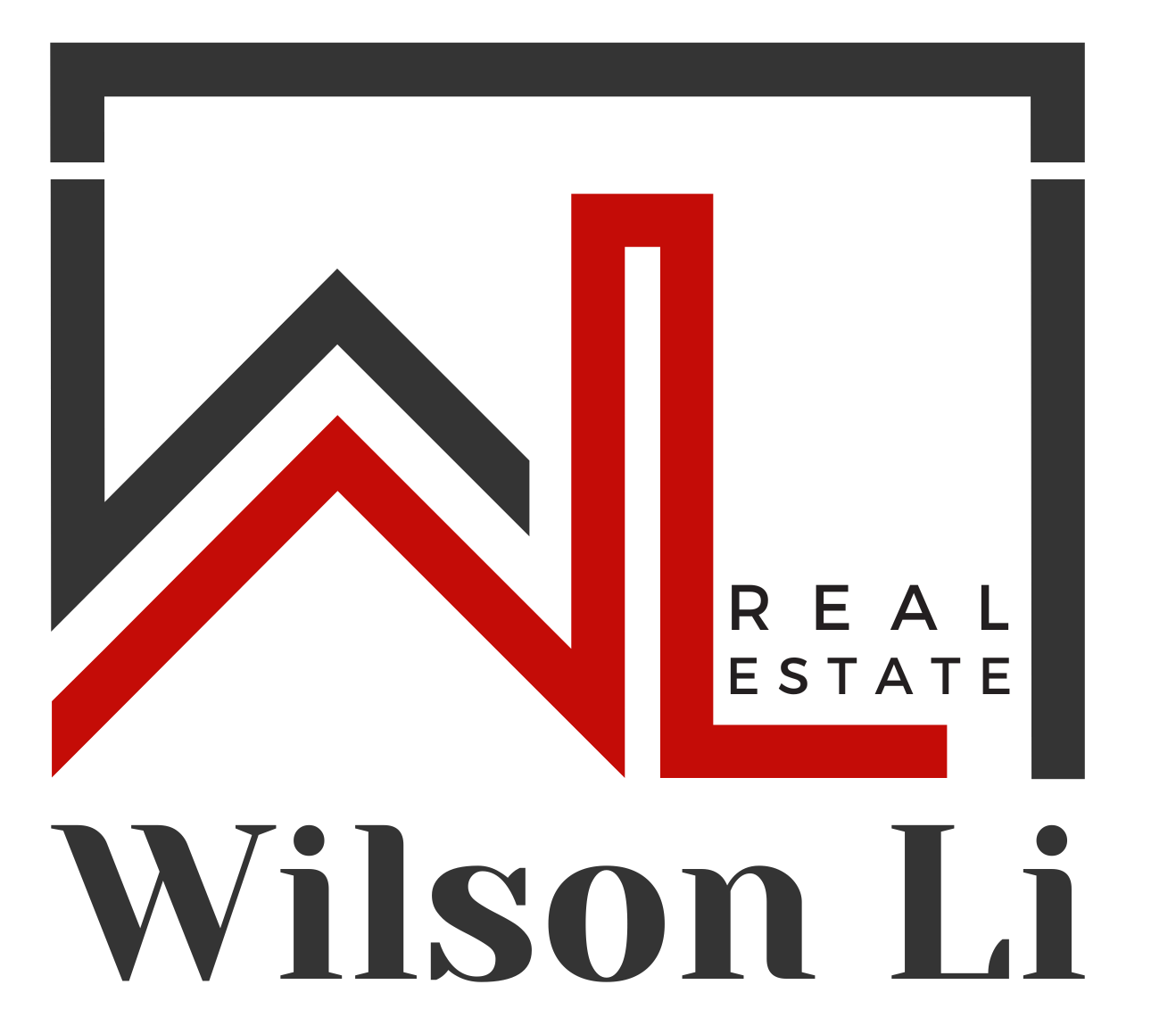REAL ESTATE BLOG
BY WILSON LI

How to Get Pre-Approved for a Mortgage in Guelph If you're thinking about buying a home in Guelph, one of the smartest first steps you can take is getting pre-approved for a mortgage. It’s more than just a number — it’s a key to unlocking your home search with confidence, especially in a competitive market like Guelph’s. Here’s a step-by-step guide to help you get pre-approved and ready to shop for your new home. 1. Understand What Pre-Approval Really Means Getting pre-approved means a lender has reviewed your financial situation and is willing to lend you a certain amount of money for a home purchase. It’s not a guarantee of financing, but it’s a strong signal to sellers that you’re a serious, qualified buyer. A pre-approval will give you: A clear price range for your home search An estimate of your monthly payments Confidence when making an offer A competitive edge in a multiple-offer situation 2. Gather Your Financial Documents To get started, you’ll need to gather the following: Recent pay stubs (or proof of income if self-employed) Two years of T4s and/or tax returns Bank account statements A list of current debts and monthly payments Government-issued ID Having these documents ready can speed up the process significantly. 3. Check Your Credit Score In Canada, lenders typically want to see a credit score of at least 600–680 to qualify for a mortgage with a good interest rate. You can check your credit score for free through services like Equifax, TransUnion, or Borrowell. If your score is lower than expected, consider taking a few months to improve it before applying. 4. Connect With a Mortgage Professional In Guelph, you can choose between working with: A bank or credit union , which often offer bundled services and products if you’re already a customer. A mortgage broker , who can shop around with multiple lenders to find you the best rate and terms. A good local mortgage broker or advisor can guide you through the pre-approval process and help explain any terms you don’t understand. 5. Complete the Pre-Approval Application Once you've chosen your lender or broker, you’ll fill out a mortgage application. This includes details about your employment, income, assets, debts, and the kind of home you’re hoping to buy. Most applications can be done online and processed in just a couple of days. 6. Get Your Pre-Approval Letter If your application is approved, you’ll receive a pre-approval letter outlining: The amount you can borrow The interest rate (typically locked in for 90–120 days) Any conditions or next steps This letter is gold when you're ready to put in an offer — it shows sellers you’re prepared and qualified. 7. Stick to Your Budget Just because you’re approved for a certain amount doesn’t mean you should max it out. Work with your realtor to find a home that fits your budget and lifestyle comfortably — including extra costs like property taxes, home insurance, and utilities. Final Thoughts Getting pre-approved is one of the most important — and empowering — steps in your home buying journey. In a market like Guelph, where homes can sell fast and competition is strong, being prepared can make all the difference. Need help connecting with a trusted local mortgage broker or want to talk about your home search goals? I'm happy to help!

🕰️ Should You Wait to Buy a Home? What to Consider in Today’s Market It’s the question nearly every potential buyer is asking: "Should I wait to buy a home, or should I make a move now?" With interest rates still high, talk of a potential market shift, and affordability concerns top of mind, it’s no surprise that buyers are feeling cautious. But the right decision isn’t one-size-fits-all. Let’s break down what’s happening in the Guelph (and Ontario) housing market in mid-2025—and whether waiting is the smart move for you . 📉 Interest Rates: Still High… But for How Long? As of now, interest rates remain elevated compared to pre-2022 levels. But the Bank of Canada has signalled potential rate cuts by late 2025 or early 2026 , depending on inflation trends and economic growth. Waiting could mean: ✅ Lower monthly payments if rates drop ❌ More buyers re-entering the market = more competition and higher prices 🧠 Tip: Some buyers are using short-term fixed rates now, then planning to refinance once rates improve. 🏠 Prices Have Stabilized In many markets, including Guelph, home prices have cooled off from their early-2022 highs. While they’re not cheap, prices have levelled , and there’s more balance between buyers and sellers. Buying now could mean: ✅ Less competition ✅ More time to negotiate and include conditions ❌ A slightly higher monthly payment (but possibly a better price) If prices begin to climb again in 2026—as many experts expect— waiting could cost more in the long run , especially if rates don’t drop significantly. 📦 Inventory Is Higher, Giving You Options More listings are sitting longer, and buyers have more time to think. It’s a welcome change from the frantic pace of recent years. Today’s market lets you: Take time for inspections Include financing and sale-of-home conditions Avoid bidding wars in many segments 🏷️ In short: You’re buying in a calmer, more thoughtful environment right now. 💡 So… Should You Wait? Here’s how to decide: ✅ Buy Now If... You’ve secured a rate you can afford You’re tired of renting or want to build equity You’ve found a home that fits your lifestyle and budget You want to lock in a price before demand rises again ⏳ Wait If... Your job or income situation is uncertain You’re not emotionally or financially ready for the commitment You’re hoping to make a very competitive or cash-heavy offer in the near future You want to build your down payment a little more 🏁 Final Thoughts There’s no perfect time to buy—but there is a right time for you . The key is to weigh the pros and cons based on your personal goals, finances, and lifestyle. 📩 Still unsure? Let’s have a no-pressure conversation. I can walk you through what’s happening in the Guelph market right now, help you understand your buying power, and explore options that make sense—whether you’re ready today or next year.

Cantonese Speaking Realtor Helping Families Settle in Guelph Ontario. Guelph has become a popular destination for new immigrants from Hong Kong because it is safe, clean, and family focused. Many newcomers appreciate the peaceful lifestyle, excellent schools and more affordable housing compared to cities...

🌳 Why Families Love Sunny Acres Neighbourhood in Guelph Looking for a place to raise a family in Guelph? Sunny Acres might just be the hidden gem you’ve been searching for. With its quiet streets, mature trees, and unbeatable location, this charming neighbourhood is a favourite among families who value community, character, and convenience. Here’s why Sunny Acres continues to shine as one of Guelph’s most beloved family-friendly areas. 🏡 A Neighbourhood with History and Heart Sunny Acres is one of Guelph’s older, established neighbourhoods located just northwest of downtown . It’s known for its tree-lined streets , post-war bungalows , and a peaceful, residential vibe that feels worlds away from city noise—but is still just a short walk from it all. Many homes have been lovingly updated, offering character charm with modern touches, making it a great place for growing families who want space, style, and community. 🌞 Sunny Acres Park: A Local Favourite At the heart of the neighbourhood is Sunny Acres Park , a true community hub that families adore. Features include: A large playground with equipment for various age groups Open green spaces perfect for picnics, soccer, or kite-flying Seasonal splash pad (always a hit with the kids) Community garden plots Walking trails and mature trees providing shade and beauty Throughout the year, you’ll often find families gathering for informal playdates , birthday parties, or just a relaxing evening stroll. 🏫 Walkable to Excellent Schools Sunny Acres is close to well-regarded public and Catholic schools, including: Central Public School (JK–6) Paisley Road Public School St. Joseph Catholic School Easy access to secondary schools like GCVI and Our Lady of Lourdes The short commutes and walkability mean less time in the car—and more time together. 🛍️ Close to Everything, Yet Quiet One of the biggest draws of Sunny Acres is its proximity to downtown Guelph , without the hustle and bustle. Families can walk or bike to: Downtown restaurants and cafés Royal City Park and Speed River trails Exhibition Park Local shops, bakeries, and the Guelph Farmers’ Market You’re also a short drive or transit ride from Guelph General Hospital , the University of Guelph , and major commuting routes like the Hanlon Expressway. 🏘️ Real Estate Snapshot Most homes in Sunny Acres are single-family bungalows or 1.5-storey homes on larger lots, with a mix of renovated and original condition properties . There’s also growing interest in infill developments and laneway housing. 💡 Families love the combination of solid home value and strong long-term appreciation in this area. 👨👩👧👦 A Real Sense of Community Sunny Acres isn’t just a place to live—it’s a place to belong. You’ll find: Neighbours who say hello and look out for each other Annual events like street sales, BBQs, and clean-up days A relaxed, inclusive vibe perfect for kids and parents alike 🏁 Final Thoughts With its charming homes, walkability, excellent park space, and community spirit, it’s no wonder Sunny Acres is a top choice for families moving to or within Guelph. If you’re looking for a neighbourhood that combines comfort, character, and connection, this is one to watch. 📩 Curious about available homes in Sunny Acres? Let’s chat—I’d be happy to show you what’s on the market and what makes this neighbourhood so special for families.

🏠 What’s the Market Like for First-Time Buyers in Guelph? If you're dreaming of buying your first home in Guelph, you're not alone—but you might also be wondering: Is now a good time? What’s the market like for people just getting started? The good news: it’s not as out of reach as you might think. With the right strategy, support, and a little patience, first-time buyers in Guelph can still find solid opportunities—even in a competitive market. Here’s what you need to know. 📉 Prices Have Cooled—But Don’t Expect a Free Fall After the major price peaks of early 2022, Guelph’s real estate market has stabilized. As of mid-2025: Average home prices in Guelph sit around $810,000 , which is more manageable than the $1M+ prices during the market high. Townhomes and condos remain more affordable, often ranging from $500K–$650K , depending on location and size. 💡 Takeaway: First-time buyers now have more breathing room than during the ultra-competitive years. 🔑 Inventory Is Up, Giving Buyers More Choice Earlier in the decade, bidding wars were the norm. But in 2025, there’s more inventory , which means: Less competition per listing More room to negotiate More time to think before making an offer 🧠 Pro Tip: Keep an eye on listings that have been sitting for 2+ weeks—they could present negotiation opportunities. 💸 Interest Rates Are Still High—But Expected to Drop Mortgage rates remain higher than pre-pandemic levels, affecting how much buyers can borrow. However: Many experts predict rate cuts in late 2025 or early 2026 , which could make financing easier. Some buyers are securing short-term fixed mortgages now with the plan to refinance once rates drop . 📅 Takeaway: Buying before the rate drop might mean less competition and better price positioning. 🏘️ What Are the Best Starter Home Options? For first-time buyers in Guelph, the sweet spot often lies in homes that balance affordability, location, and future potential . Here are some of the top areas and housing types to consider: 🏢 Condos & Stacked Townhomes Great for entry-level buyers looking for low maintenance and affordable prices. Often found in Grange Hill East , Kortright Hills , Clairfields , and the South End near Gordon Street. Many come with amenities like underground parking or gym access. 🏡 Smaller Detached Homes Look in neighbourhoods like West Willow Woods , Onward Willow , and Waverley for more affordable detached homes with yard space. These areas offer good proximity to parks, schools, and transit. 🏠 Older Bungalows & Split-Levels Found in areas like Parkwood Gardens or St. Georges Park , these homes often have great bones and can be updated over time. Good resale potential if you’re planning to move up in 5–7 years. 🏘️ Townhomes in Family-Friendly Areas Complexes in Victoria North , Grange Hill , and parts of Hanlon Creek are ideal for young families or couples needing 2–3 bedrooms on a budget. Some offer finished basements or garage parking at a lower price point than detached homes. 💼 Homes with Rental Potential Consider properties with in-law suites or basement apartments, especially in areas like Kortright Hills , Downtown Fringe , or West End , where zoning may allow accessory units. This can help offset your mortgage and boost long-term ROI. 🎯 Pro Tip: Work with a real estate agent who knows how to identify good bones, future value, and hidden gems—even in a tough market. 🤝 First-Time Buyer Incentives & Support Don’t forget: there are several programs designed just for first-time buyers , including: Land Transfer Tax Rebates First-Time Home Buyer Incentive (shared equity) RRSP Home Buyer’s Plan Tax-Free First Home Savings Account (FHSA) 💬 Ask your mortgage advisor and Realtor® how to stack these incentives and stretch your budget further. 🏁 Final Thoughts The Guelph market today offers a rare window for first-time buyers: fewer bidding wars, slightly softened prices, and a chance to buy smart before the next upswing. While it’s not without its challenges, the right property in the right neighbourhood can still be within reach . 📩 Thinking of buying your first home? I’d love to walk you through every step—from financing options to neighbourhood match-making and negotiation strategies. Let’s make this milestone a smooth one.

📦 Tips for Downsizing in Guelph: Simplify Without Sacrificing Comfort Whether you’re retiring, becoming an empty-nester, or simply ready for a lifestyle change, downsizing your home can be a smart and rewarding move. But less space doesn’t have to mean less living—it’s all about making intentional choices that fit your next chapter. If you’re planning to downsize in Guelph, here are some helpful tips to guide you through the process. 🏡 Why Guelph Is a Great City for Downsizing Guelph offers a unique mix of small-town charm and big-city convenience. Downsizers love it for: Walkable, established neighbourhoods like Exhibition Park , Downtown , and The Ward Access to healthcare, public transit, and community programs A growing number of bungalows, condos, and low-maintenance townhomes ✂️ 1. Start Decluttering Early The most emotionally challenging part of downsizing is letting go of things . Give yourself time to: Sort items into “Keep,” “Donate,” “Sell,” and “Toss” Pass along family heirlooms now instead of storing them Digitize old photos, documents, or videos to save space 💡 Tip: Begin with easy areas like bathrooms or storage closets before tackling sentimental items. 📏 2. Measure Your New Space Whether you're moving into a condo near downtown or a smaller home in the south end, know the dimensions of your new rooms. Bring a tape measure to furniture showrooms or use painter’s tape to map out layouts. ✔️ Don’t forget to account for closet space, ceiling height, and storage solutions. 🧹 3. Embrace Low-Maintenance Living If you’re moving to a bungalow or condo , consider: Lawn and snow removal services Community amenities (like gyms or meeting rooms) Condo fees vs. cost of home upkeep 🏘️ Areas like Village by the Arboretum or Clairfields offer excellent options for low-maintenance, downsizer-friendly living. 💰 4. Consider the Financial Upside Downsizing isn’t just about square footage—it’s about financial freedom: Lower utility bills and property taxes Opportunity to reinvest equity or travel more Less home maintenance means more time for yourself 💡 Ask your realtor to help compare monthly costs before and after the move to see your true savings. 👨👩👧 5. Think About Lifestyle, Not Just Size Before making the move, ask yourself: Do you want to walk to shops and coffee spots? Do you need a guest room for visiting family? Is single-floor living important for mobility? Downsizing shouldn’t feel like “less”—it should feel like more of what matters . 🛋️ 6. Invest in Smart Storage A smaller space doesn’t mean giving everything up—it means getting creative : Use multi-purpose furniture (storage ottomans, lift-up beds) Install closet organizers and vertical shelving Embrace minimalist design with hidden storage 🧠 Less clutter = less stress. 🏁 Final Thoughts Downsizing in Guelph can be a liberating and exciting step, offering a more manageable home, extra time, and often extra cash. With the right planning—and the right support—you can simplify your space and amplify your lifestyle . 📩 Thinking about downsizing? Let’s explore the best Guelph neighbourhoods, smart options, and what your current home could sell for in today’s market. I’m here to make the transition smooth and stress-free.

🏡 What to Expect from a Final Walk-Through You’ve negotiated the deal, signed the paperwork, and the closing date is almost here—congrats! But before you get the keys to your new home, there’s one important step left: the final walk-through . This might seem like just a formality, but it’s a crucial part of protecting your investment. Here’s what you need to know, what to bring, and what to look for during your final visit to the property. ✅ What Is a Final Walk-Through? The final walk-through is typically scheduled 24 to 72 hours before closing . It’s your last chance to ensure: The home is in the same condition as when you agreed to purchase it Any repairs or inclusions negotiated in the agreement have been completed There are no new issues or damage since your last visit Note: This is not a home inspection. It’s a confirmation step to avoid surprises on closing day. 🧰 What to Bring Copy of your Agreement of Purchase and Sale Final home inspection report (if applicable) A notepad or checklist Phone or flashlight for checking dark spaces Your real estate agent (they’ll be your best advocate if anything’s wrong) 🔍 What to Check During the Final Walk-Through 1. General Cleanliness & Condition ✔️ Has the home been emptied of personal belongings? ✔️ Is it reasonably clean (broom-swept at minimum)? 2. Agreed-Upon Repairs ✔️ Were repairs completed professionally? ✔️ Are receipts or proof of work available? 3. Appliances & Systems ✔️ Are all appliances included in the sale still present? ✔️ Do the lights, faucets, toilets, HVAC, and outlets work? 4. No New Damage ✔️ Are there any new holes in walls, leaks, or broken items? ✔️ Was anything damaged during move-out? 5. Outdoor Areas ✔️ Is the yard maintained and free of debris? ✔️ Are items like sheds, patios, or play structures still in place if included? ❗What If You Find a Problem? Don’t panic—but don’t ignore it either. If something major is wrong (e.g., an appliance is missing, a repair wasn’t done, or there’s new damage), your real estate agent can: Negotiate a holdback on funds at closing Request repairs or compensation Delay closing if needed (rare, but possible) 📆 Quick Checklist: Final Walk-Through To-Dos ✅ Bring your agreement and inspection report ✅ Test all lights, outlets, toilets, and appliances ✅ Confirm completion of agreed repairs ✅ Open windows, doors, cabinets ✅ Check garage, attic, and basement ✅ Document concerns with photos ✅ Ask questions—don’t assume! 🏁 Final Thoughts The final walk-through is a simple, 30–60 minute step that offers peace of mind and protection before closing. With your agent by your side and a sharp eye, you can ensure everything is in place so the only surprise on closing day is how excited you are. 📩 Buying soon in Guelph or nearby? I’ll guide you through every step—including the final walk-through—to make sure you close with confidence.









